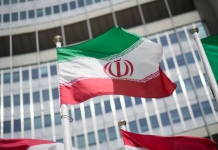DM Monitoring
VALLETTA: Streets in Valletta, Malta’s capital city and a UNESCO (United Nations Educational, Scientific and Cultural Organization) World Heritage site, are bustling again with tourists mostly from other member states of the European Union (EU) and the United Kingdom (UK).
As of July 1, holders of an EU Digital COVID Certificate (DCC) and UK citizens who hold a green travel pass are allowed to enter Malta without restrictions.
The EU’s DCC, which was formally launched on July 1, features a QR (quick response) code, which contains the holder’s name and date of birth, the card’s date of issue, and a certificate of vaccination, test or recovery from COVID-19. Its aim is to facilitate freedom of movement in the EU.
In recent days, Malta International Airport has been inundated with tourists. According to local media reports, long queues have formed at the airport as the incoming tourists’ COVID documents are meticulously checked to filter out the odd infected visitor.
Europe’s air travel industry has warned that the DCC verification process is still “fragmented,” which threatens travel safety on the continent. In a letter addressed to the EU member states’ leaders and signed by Airports Council International (ACI) Europe, Airlines for Europe (A4E), the International Air Transport Association (IATA) and the European Regions Airline Association (ERA), the industry has urged the EU member states’ leaders to “harmonize DCC verification standards and protocols, to avoid unnecessary airport queues and ensure a smooth passenger experience.”
According to the signatories, no less than ten different national approaches and solutions are currently under review across the EU. “A lack of full and effective integration of the DCC in the passenger journey, as well as duplication of document checks both pre-departure and upon arrival” threatens the restart of air travel this summer and “will undermine free movement of citizens across the EU,” the letter said. The implementation of the DCC is widely considered an important step toward getting life back to normal. However, a fourth wave of coronavirus infections is already looming large across Europe as an increasing number of countries, among them the UK, Portugal and Spain, report a fresh spike in COVID-19 cases caused by the highly contagious Delta variant of COVID-19, which was first detected in India.
Hans Kluge, the World Health Organization’s (WHO) regional director for Europe, has recently warned that the new virus strains, coupled with a slow vaccine rollout and an increased social mixing, could result in “a new wave of excess hospitalizations and deaths before the autumn” in the WHO’s European region.
To counter the potential upsurge, Kluge again called upon the region’s authorities and inhabitants to “remain disciplined” and urged citizens to take the vaccine if offered.
Stephen Pisani, a 38-year-old Maltese citizen, has just received his COVID-19 vaccination certificate. He does not plan to take long journeys abroad this summer – he is thinking of visiting Sicily for a weekend, which is only 90 minutes away from Malta taking the high-speed ferry.



